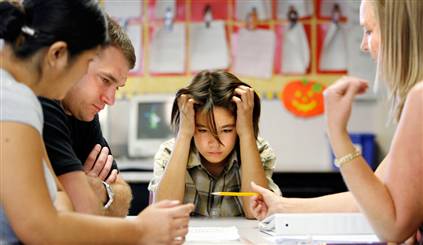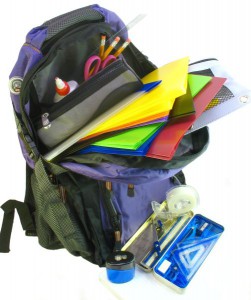Blog
Giving Students the Opportunity to Succeed on Their Own
Last month, New Yorker magazine published an article with the rather incendiary title “Spoiled Rotten: Why Do Kids Rule the Roost?” While this introduction to a very important topic may seem somewhat off-putting, the information contained within was actually very applicable to the students that Engaging Minds seeks to help.
Author Elizabeth Kolbert begins her piece discussing a 2004 anthropological study that compared the responsibilities of the youth of a Peruvian tribe in the Amazon with those of youngsters in Los Angeles. Of course, the upshot of the study was that the Matsigenka children had far more responsibility at a far earlier age, while the Angelinos were indulged, placated and generally had little expected of them.
Kolbert then goes on to assign “blame” for this phenomenon to the technological advances (and advantages, depending on your perspective) that our first-world culture enjoys. She also points to parents’ fear that their children will never get ahead without adult assistance, referencing Slouching Towards Adulthood: Observations from the Not-So-Empty Nest by former McCall’s editor-in-chief Sally Koslow. In her book, Koslow states, “Our offspring have simply leveraged our braggadocio, good intentions, and overinvestment.” In other words, according to Kolbert, though parents’ intentions may be wholly good (helping their offspring succeed), the result is children who are either unwilling or unable to do for themselves what their parents can or will do for them.
Kolbert also mentions psychologist Madeline Levine’s book Teach Your Children Well: Parenting for Authentic Success, including the following thought provoking quote:
Most parents today were brought up in a culture that put a strong emphasis on being special. Being special takes hard work and can’t be trusted to children. Hence the exhausting cycle of constantly monitoring their work and performance, which in turn makes children feel less competent and confident, so that they need even more oversight.
There is no ques tion that some parents of children with executive functioning issues and ADD/ADHD often find it easier to do things for their offspring; the alternatives can range from the task-at-hand never being completed (or being completed inadequately) to lengthy and frequent battles between parent and child. But never allowing your child to attempt to do things for him/herself has the exact consequences referenced above: feelings of incompetence, lack of confidence and an ongoing and ever-increasing cycle of the child not being able to do for him/herself and the parent stepping in to “save the day.”
tion that some parents of children with executive functioning issues and ADD/ADHD often find it easier to do things for their offspring; the alternatives can range from the task-at-hand never being completed (or being completed inadequately) to lengthy and frequent battles between parent and child. But never allowing your child to attempt to do things for him/herself has the exact consequences referenced above: feelings of incompetence, lack of confidence and an ongoing and ever-increasing cycle of the child not being able to do for him/herself and the parent stepping in to “save the day.”
So as a parent of a child with executive functioning and/or or attention issues, how do you balance wanting your child to succeed and feel confident with allowing him/her to learn through doing things for him/herself? One way of approaching this is to start small and build on success while working with tangible goals.
As the start of the school year approaches, you as parents have a perfect opportunity to begin with a clean slate. If you have always packed your child’s backpack for him/her, here is a great chance to get your child involved and invested in the process. Together, make up a checklist (we’re big on checklists at EM!) of items needed both to go TO school and to bring back FROM school. Come up with a very specific order for packing and unpacking the backpack so that your child has a means of physically interacting with his/her supplies in an organized fashion. Get your child’s teacher onboard with touching base with your child about his/her “going home” checklist, and let your child know that s/he is part of a team working together towards greater success.
This appro ach can work for other organizational tasks as well. If your child has a homework notebook that needs to be filled out at school (and at EM we recommend this regardless of whether or not the school uses one), create a checklist that is tied into the homework notebook. If your child likes to pack his/her own lunch or you want to encourage some culinary independence, do some lunch meal-planning together and come up with a checklist for what needs to go into the lunch box or bag every day (one positive side effect of this is less trading and fewer mushy remains left at the bottom of the bag).
ach can work for other organizational tasks as well. If your child has a homework notebook that needs to be filled out at school (and at EM we recommend this regardless of whether or not the school uses one), create a checklist that is tied into the homework notebook. If your child likes to pack his/her own lunch or you want to encourage some culinary independence, do some lunch meal-planning together and come up with a checklist for what needs to go into the lunch box or bag every day (one positive side effect of this is less trading and fewer mushy remains left at the bottom of the bag).
By allowing your child to set up a positive and focused approach to organizing his/her materials and supplies you are setting up an opportunity for success. While in the short run it will take some practice (like all new tasks), resisting the urge to step in and do it for your child will help him/her gain confidence and competence in the long run.

